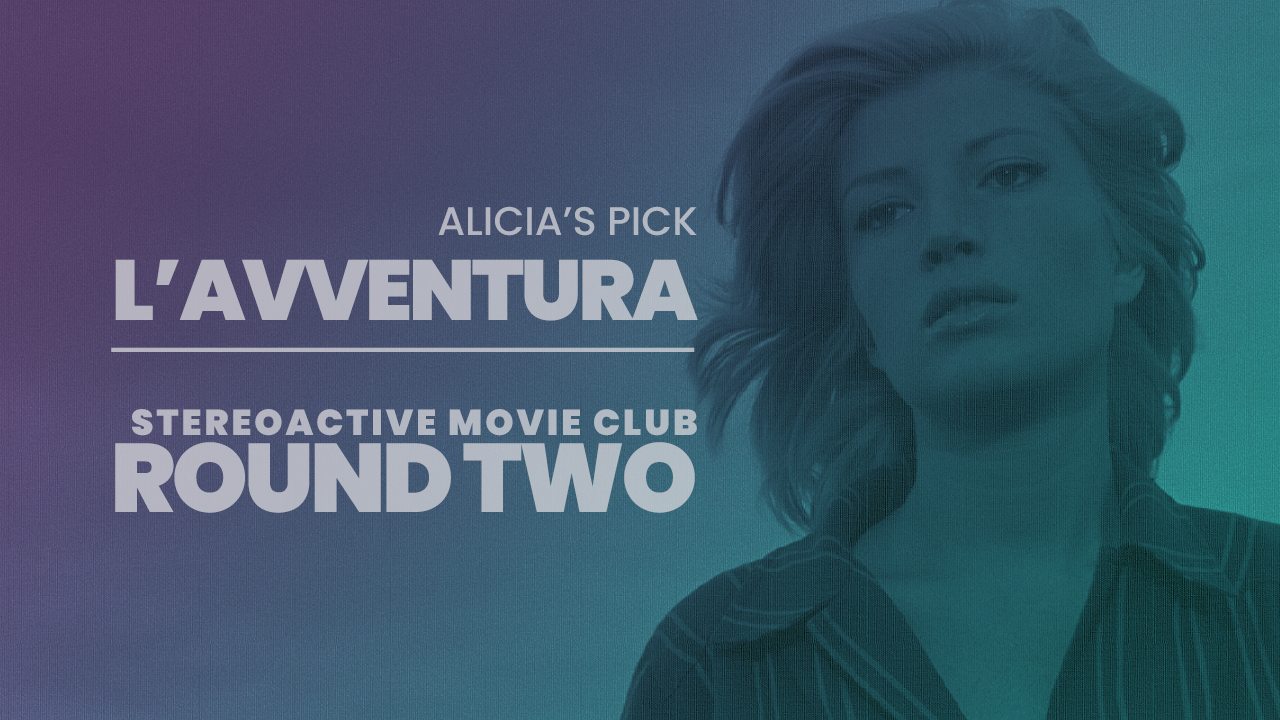Available on Goodpods, Apple Podcasts, Spotify, and anywhere else you listen to podcasts.
It’s Alicia’s 2nd pick: Released in 1960 and directed by Michelangelo Antonioni, the movie begins with a woman, Anna, meeting her friend, Claudia, and fiancé, Sandro, as they head out to meet other friends for a boat trip on the Mediterranean. The trip takes them to a group of islands, where they disembark and Anna goes missing. After unsuccessfully searching the island for her, the authorities are called in for further reconnaissance. Eventually, the whole party returns to the mainland, still unable to find Anna. Claudia and Sandro, still somewhat on the hunt for Anna, make their way to different parts of Italy, as the rest of the party fades back to their lives. The duo’s search becomes less focused on Anna as they begin to explore their feelings for each other, while still intersecting from time to time with people whom they hope can help them in their search, as well as members of the boat party.
The film opened at the 1960 Cannes Film Festival and, apparently, its first screening didn’t go so well. There was laughter throughout, and booing during some of the less than traditionally eventful scenes. This reaction left the film's breakout star, Monica Vitti in tears and she and Antonioni fled the screening. Despite this, many of the filmmakers at the festival signed a note delivered to the filmmakers that declared L’avventura the best movie at the festival. And while it was nominated for, but did not win the Palme d’Or that year (that went to fellow Italian filmmaker Federico Fellini’s La Dolce Vita), it was awarded a Jury Prize.
After Cannes, the film went on to play around the world, gaining plenty of praise from critics as it made the rounds. Film and culture critic Gene Youngblood, in his audio commentary for the film on its Criterion Collection release, called it the first component of a "unified statement about the malady of the emotional life in contemporary times." – the rest of that “unified statement” being Antonioni’s next 2 films, La Notte and L'Eclisse, which with this film are considered a “trilogy on modernity and its discontents.”
As far as Sight & Sound magazine’s ‘greatest films’ poll goes, it’s appeared in the Top Ten 3 times, coming in at #2 in 1962, just two years after its release… then at #5 in 1972 and at #7 in 1982 – it’s last appearance in the top 10.
For more information on this podcast, including where it's available, please visit the show's homepage.







